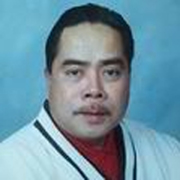SUMMARY
This is AI generated summarization, which may have errors. For context, always refer to the full article.
 CALIFORNIA, United States of America – After the impeachment of Renato C Corona as chief justice, we can aptly describe the state of the Supreme Court in the words of Charles Dickens as “the best of times, the worst of times; a season of hope and a season of despair.”
CALIFORNIA, United States of America – After the impeachment of Renato C Corona as chief justice, we can aptly describe the state of the Supreme Court in the words of Charles Dickens as “the best of times, the worst of times; a season of hope and a season of despair.”
That venerable body has been wounded as it had never been before and its credibility as the final arbiter of all controversies must be restored. The Supreme Court is now at the threshold of a new era, the trajectory of which will be determined, to a large extent, not only by the qualifications of the next chief justice to be appointed, but also by the timely imperative of re- institutionalizing the mechanism whereby the independence of the chief justice is assured and publicly acknowledged.
And what is that mechanism? The seniority tradition in the choice of the chief justice. That tradition has been in place since the Philippine Supreme Court was established during the American Commonwealth period. It has served its purpose well and has contributed to the image of the supreme court as an independent body.
Independence, as applicable to the supreme court, is not only a buzz word. It’s the primordial mark of a constitutional body mandated to safeguard and interpret the Constitution as the will of the people, a will which constitutionally trumps those of the elected legislative and executive branches of the government.
The people expect no less. A namby-pamby Supreme Court, among others, will be catastrophic to any functional democracy. That’s why, any hint of lack of independence by justices, much more so by the chief justice, infuriates the people, who rightly expect the Court to be no less than the last, pristine bulwark of democracy, and the avatar of justice and fairness.
The Supreme Court has no armies to command nor purses to bestow. Its power among the people hinges on its moral ascendancy. And such ascendancy relies, inter alia, on its independence. A chief justice should thus not only be qualified, but also independent both by his character and by public perception. Adhering to the seniority rule will achieve such requirements.
For we cannot gainsay the fact that a chief justice is more often than not bound to be independent and perceived to be such, if he got his position, not only by presidential fiat, but likewise by the circumstance of his having risen from the ranks and having amply paid his dues by being the longest serving inter pares.
Cory’s decision
History reminds us that perhaps the only time the seniority tradition in the Philippine Supreme Court was truncated, other than during the aberrant Japanese occupation, was when ex-President Ferdinand Marcos bypassed Claudio Teehankee and appointed another junior justice as chief justice, the reason being that Teehankee was independent and would not kowtow to the dictator.
Providentially, when Cory Aquino took power as president, she sought to right what was wrongfully done in the Supreme Court, and restored the independence of the judiciary by appointing the then most-senior Claudio Teehankee as chief justice, a post he was deprived of when Marcos ignored the seniority tradition.
Cory did not know the independent-minded Teehankee from Adam before she sought him out to administer her presidential oath. The fact that Cory wanted the seniority tradition followed is confirmed by her subsequent appointment(s) to the chief-justice position, an example followed by her successors, except once by the reviled GMA.
History is giving President Pnoy a golden chance to follow the patriotic judgement and vision of her mother by restoring the seniority tradition in furtherance of an independent supreme court. Let not the personal or political passion of the times becloud his judgment in these perilous times for the judiciary and the nation.
Although seniority is not mandated by law, it is mandated by the demands of an independent, credible and respected institution, as well as by the gradual restoration of the people’s trust in a currently-disdained Supreme Court.
President Aquino’s momentous decision anent this historic opportunity will determine whether he will act as a statesman with an eye on history or as just another myopic politician with no perceptible legacy to establish for future generations to follow. – Rappler.com
(A lawyer based in California, the author is a member of Integrated Bar of the Philippines and the California State Bar.)
More in #SCWatch:
- SC must return to ‘dignified days of silence’ – Sereno
- ‘Woman CJ not necessarily pro-woman’
- Next 3 presidents will have Sereno as CJ
- Sereno is 1st female chief justice
- 22 official candidates for Chief Justice
- JBC to interview CJ candidates starting July 24
- 25 accept nominations for chief justice
- Questions for chief justice candidates
- JBC should review process of choosing CJ
- Besides JBC, Palace has judicial search committee
- CONVERSATIONS: How should the JBC choose the next chief justice? #SCWatch
Add a comment
How does this make you feel?
There are no comments yet. Add your comment to start the conversation.